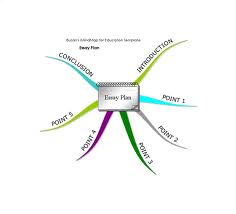
Draft your personal statement.
This is the biggie. This is when steps 1-5 all come together and you start to feel that you really are making progress towards your application.
The first thing I will say here is do not underestimate the time it will take you to write your definitive personal statement. It most cases it is ridiculously optimistic to think that putting two hours aside one afternoon will be enough for you to complete the finished version. In my experience a personal statement is usually something that is done (and redone) over weeks, maybe longer. Certainly it is a great rarity for me to pass off a first draft as ‘perfect’. Whoever may be reviewing your statement (and don’t forget that we provide a wonderful, and very reasonably priced review service here at Momentum ;-)), it is important for you to expect to see it handed back with red lines scrawled through it, paragraphs cut up and chopped about and a few question marks placed here and there. Please don’t be disheartened by this. It is a sign that you are well on your way and that progress is being made.
I don’t want to go into the intricacies here of what makes a strong personal statement and what doesn’t. Whilst I have touched upon a few of the themes in this series already, I think I’ll leave that to an entirely new blog post. I want this one to focus on the practicalities of putting your first draft together.
The hardest bit is usually getting started. I recommend that, rather than sitting down and trying to write one from scratch (whilst pondering frustratingly over what to use as your opening sentence) you invest in a serious bit of brainstorming time. Grab a piece of paper and divide it up into sub-headings. Don’t focus yet on writing full and grammatically correct sentences - there is plenty of time for that later. Just focus now on getting the ideas down. In my experience it is amazing just how much students remember about previously-forgotten things they’ve done in the past/skills they’ve developed along the way when they commit to a bit of brainstorming.
Brainstorming should help to bring your main ideas to the fore. You may now even have some ideas in your head of how ideas and themes link together and how your statement will flow. It is worth sketching out a loose structure. It is up to you how this structure works but it is certainly more common for people take it theme at a time (ie why I’ve chosen to study the subject/what I’ve learnt from my current studies/ work experience that I’ve gained) rather than running through a more chronological approach. Whilst it is about what works for you, it is also about how ‘easy to follow’ it is for the admissions tutor. For example, from my experience the ‘employment’ section of the UCAS form is often skimmed over only very briefly by admissions tutors. It is important that you don’t assume they have a clear understanding of all the jobs you have done in the past and the order you’ve done them in. I’ve seen lots of students make this assumption and it can lead to a very confusing timeline in their personal statement.
Once your brainstorming is done and you structure is in place, it is time to start fleshing it out. Don’t worry if it doesn’t sound perfect at first. In every piece of writing we produce there is inevitably a bit that we struggle over, that doesn’t quite sound right and can create a bit of a mental block. You’re reviewer will be able to pick up on this and maybe suggest some thoughts of their own. Over time you will get there. But give it time. Have a list of reviewers, and proof readers, lined up and set yourself clear deadlines by which you are to complete the different sections and drafts.
Personal statements are such a huge influencing part of the UCAS process that I will be returning to this theme shortly. But for now, you should hopefully have the ideas and the impetus to start ‘getting ahead’ in the university applications process. Over the years I’ve seen so many students promising to have their first draft personal statement complete by the very beginning of the academic year but few of them have actually managed it. Be one of them.
If you missed the previous steps to getting ahead, the whole blog series can be viewed here.
Momentum Careers Advice offers one to one career consultations to anyone who needs help with their university choices or decisions. We also offer a great value-for-money personal statement review service, to help optimise your chances of impressing the admissions tutors. For more information about either service click here.